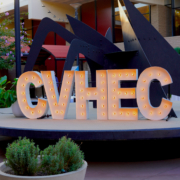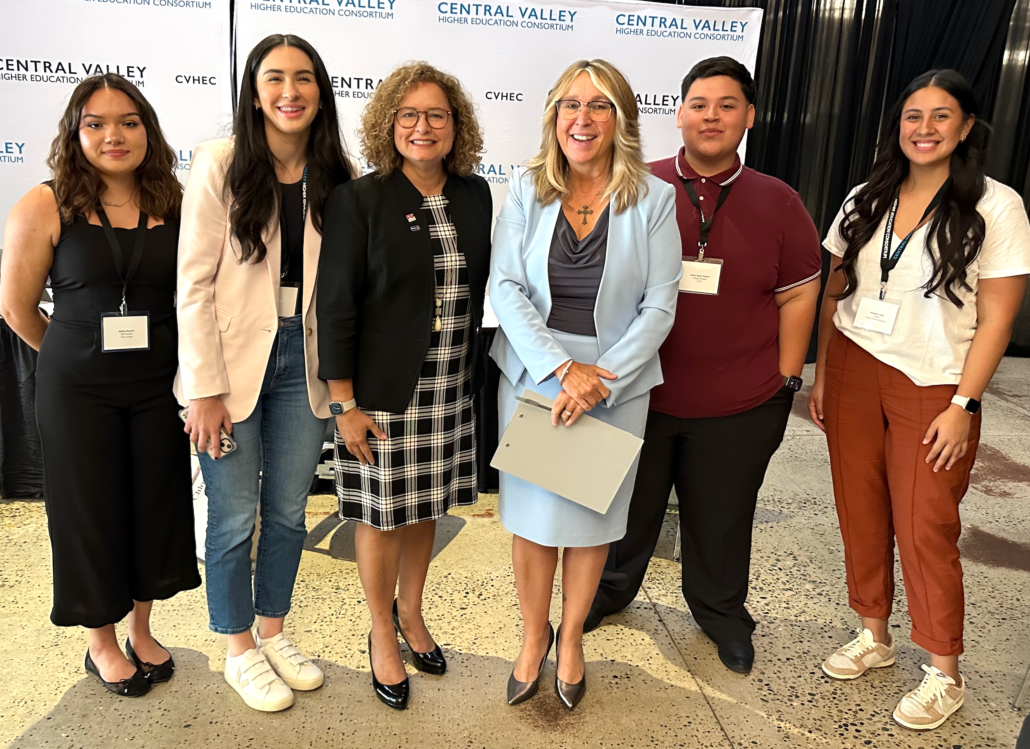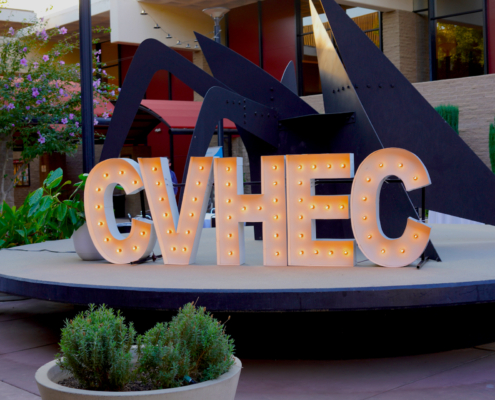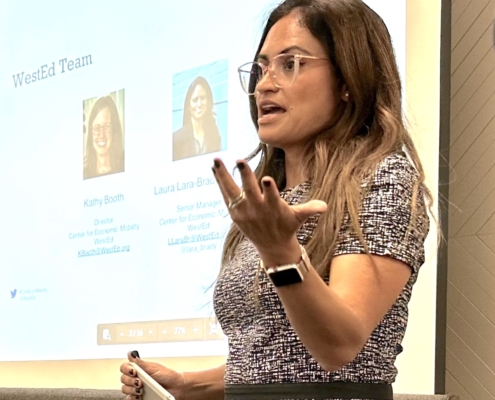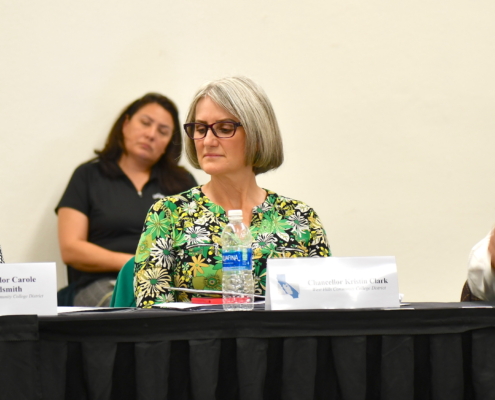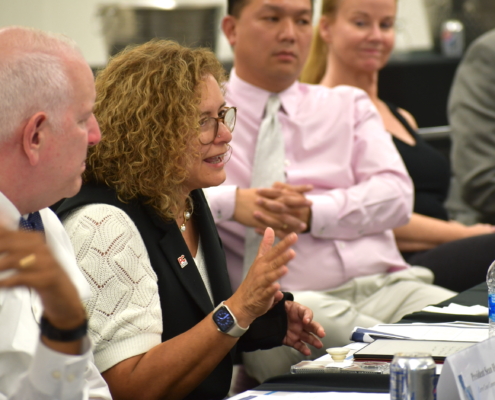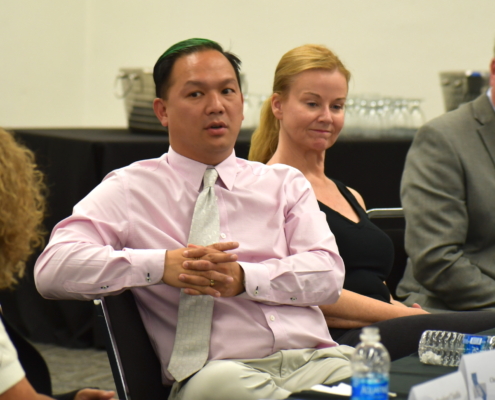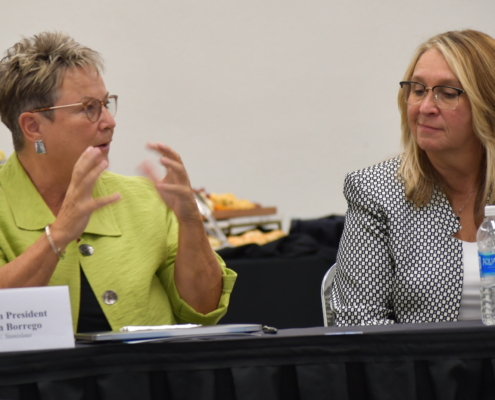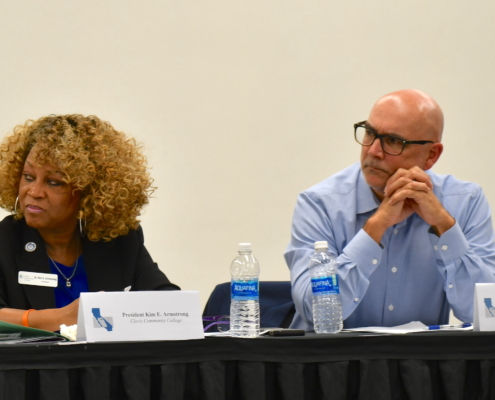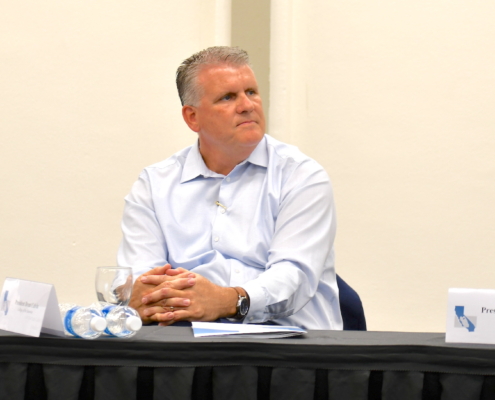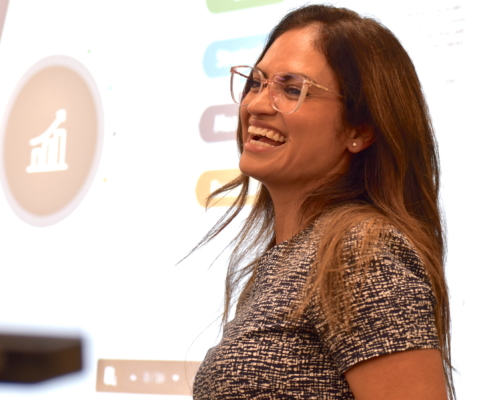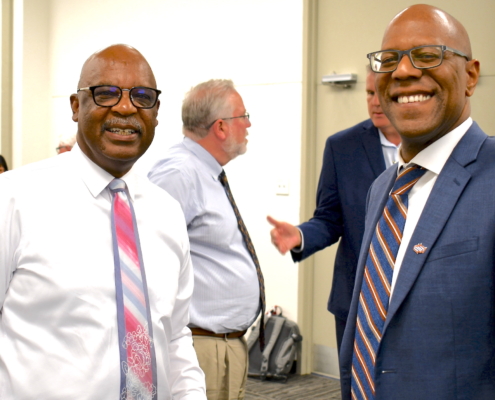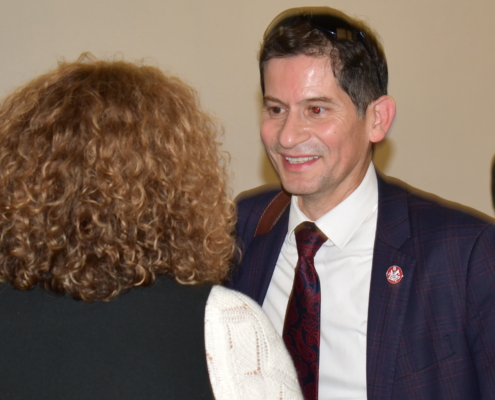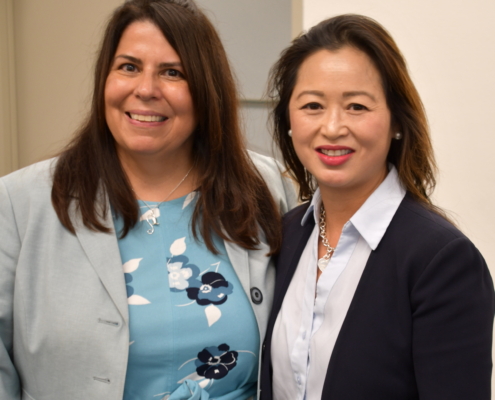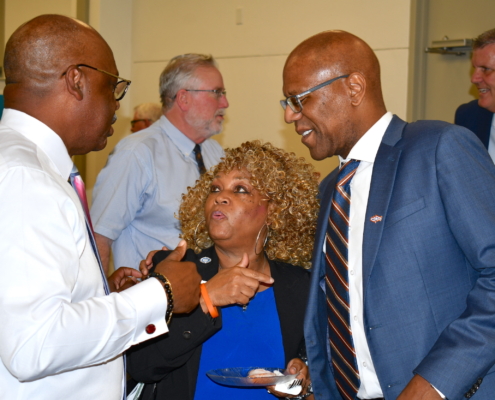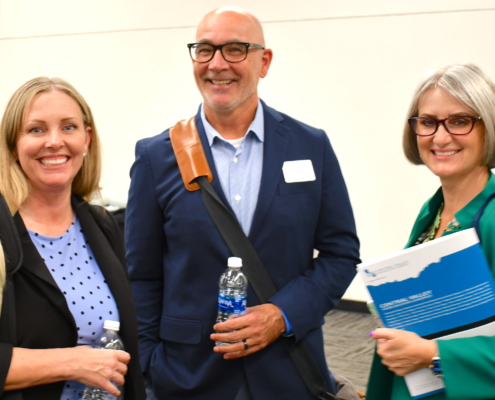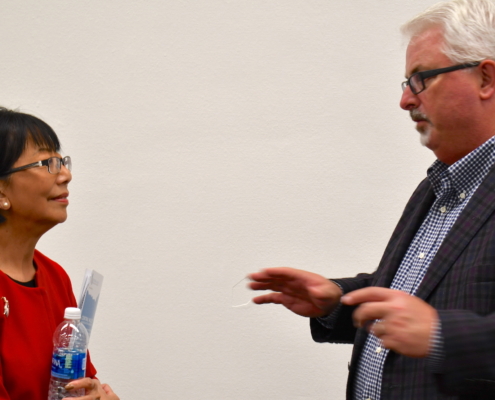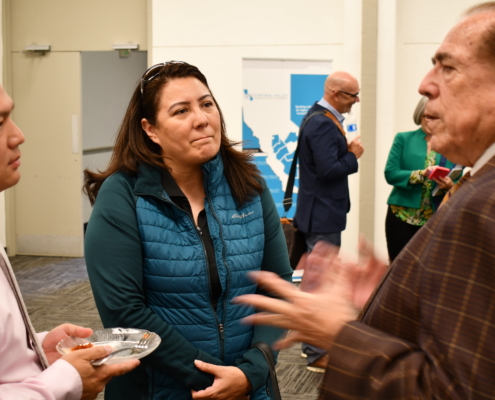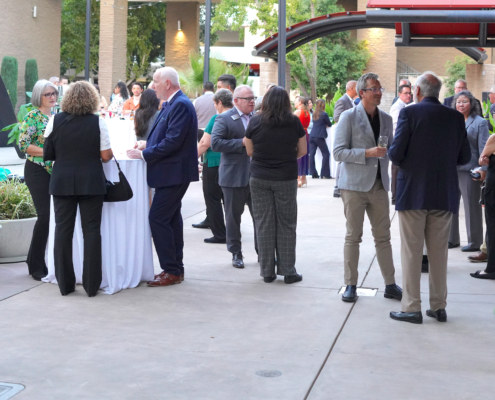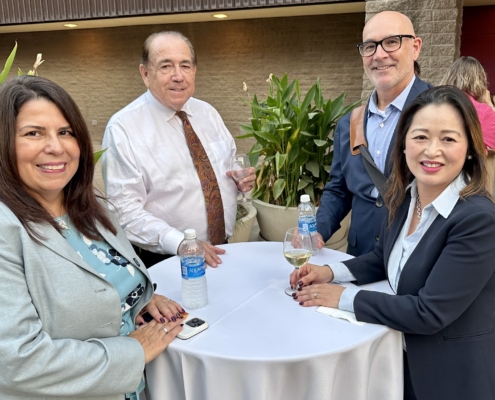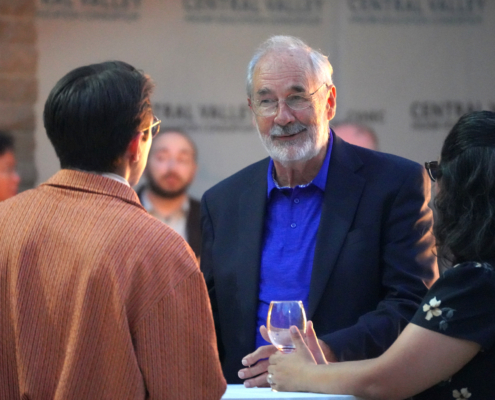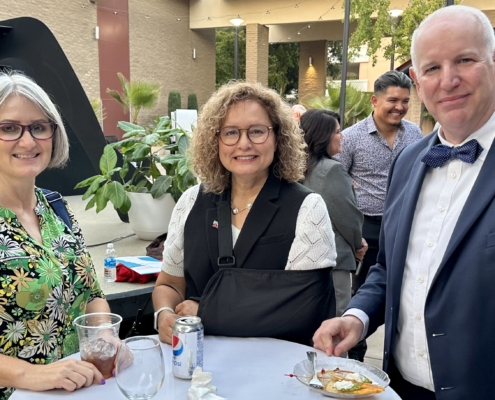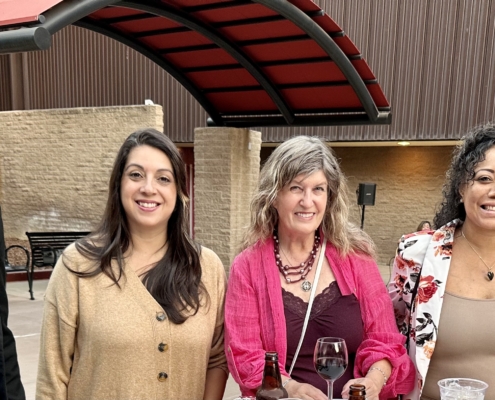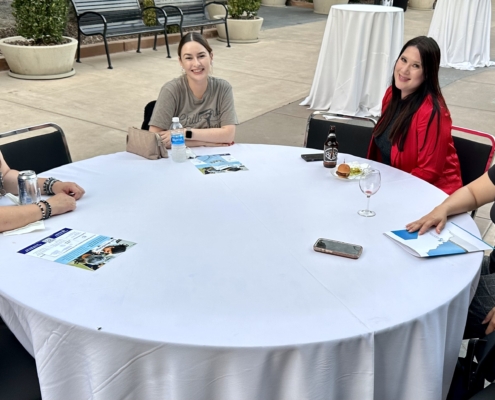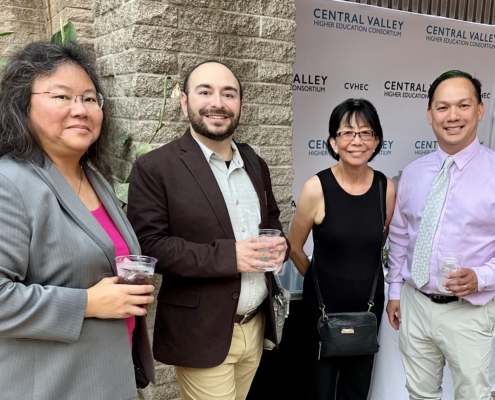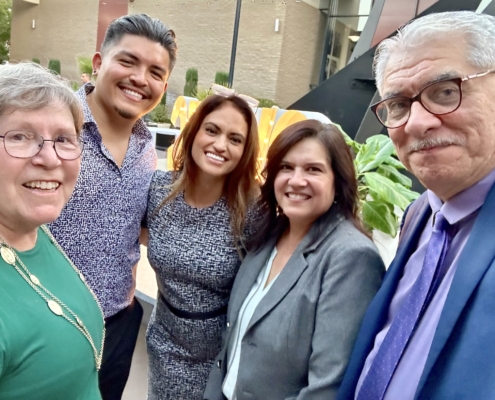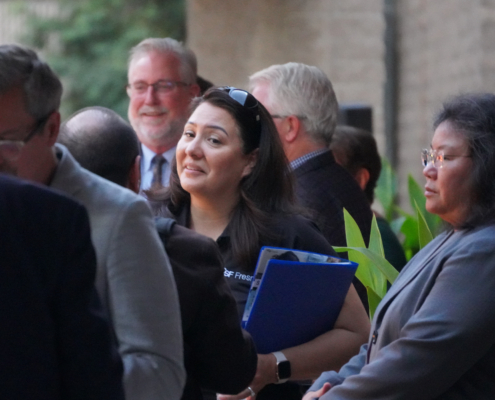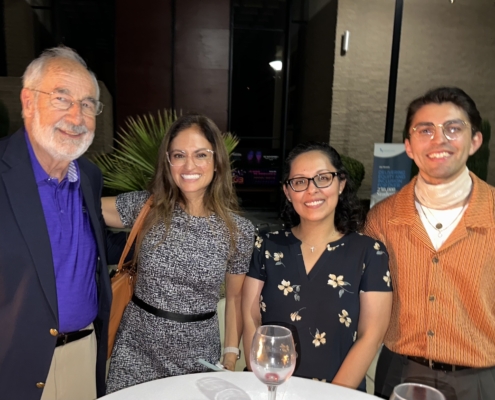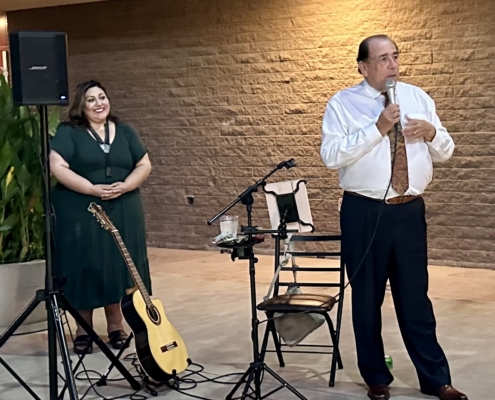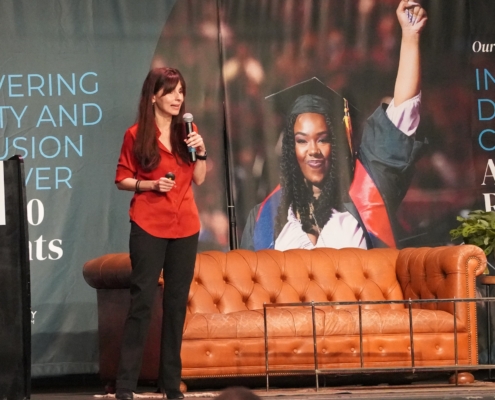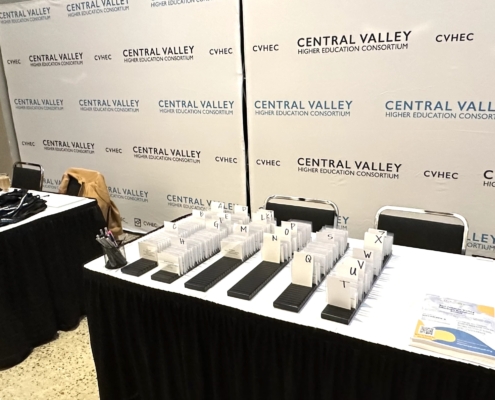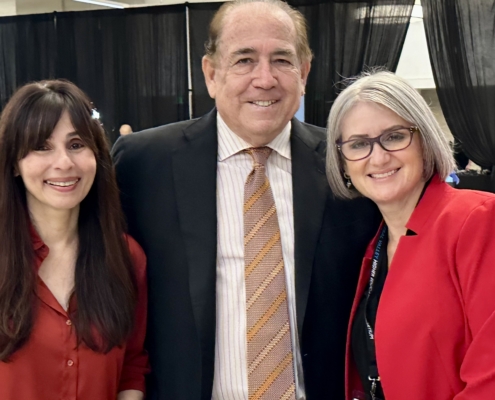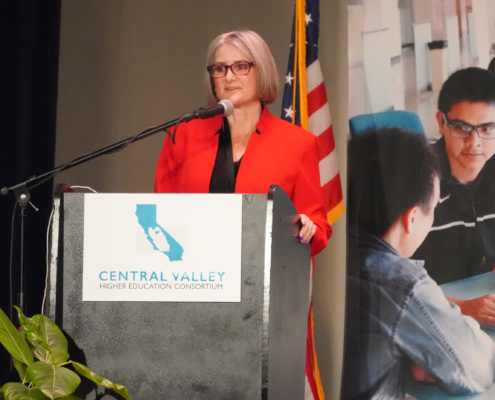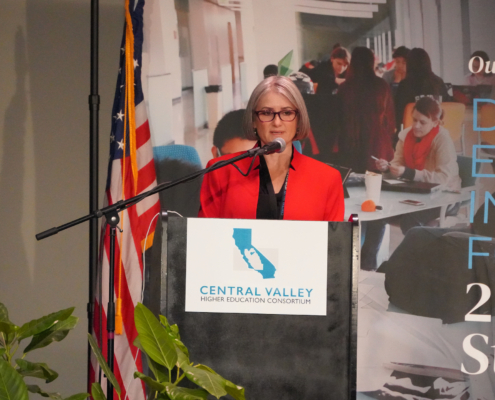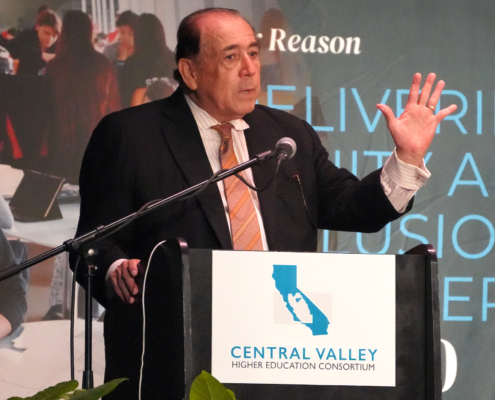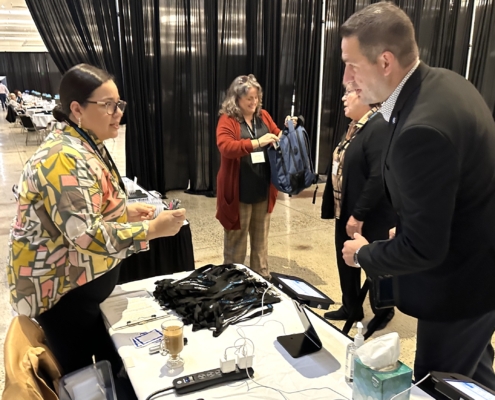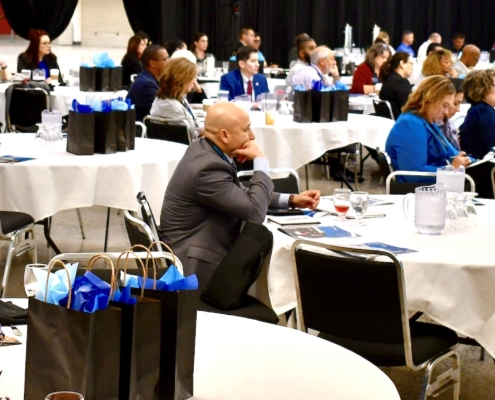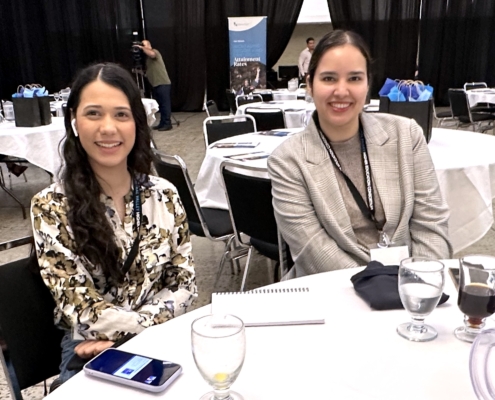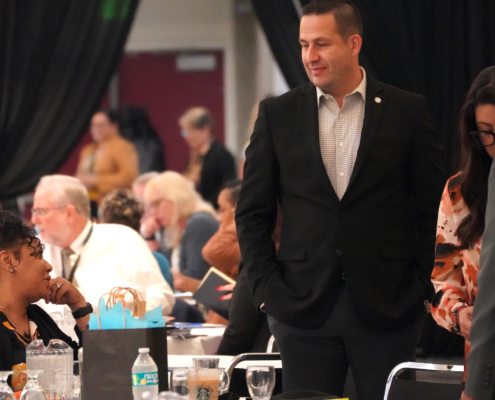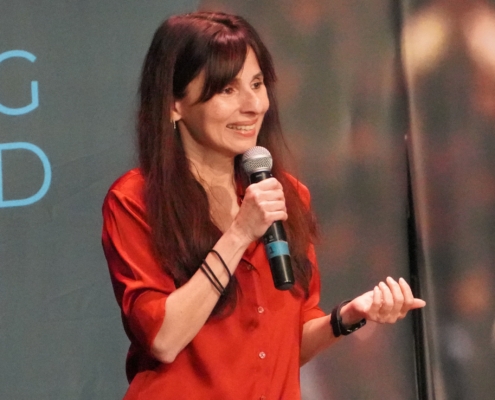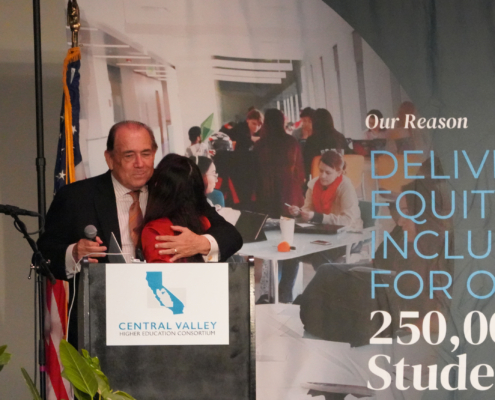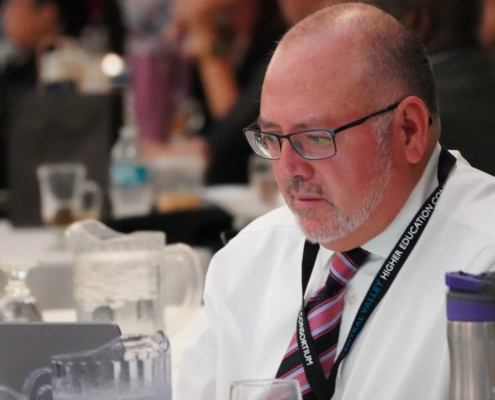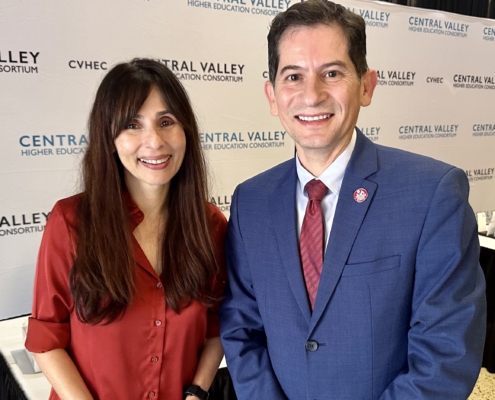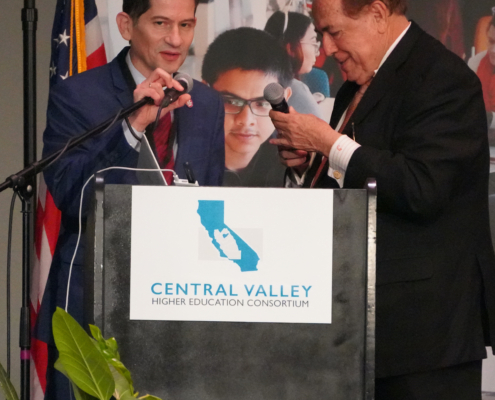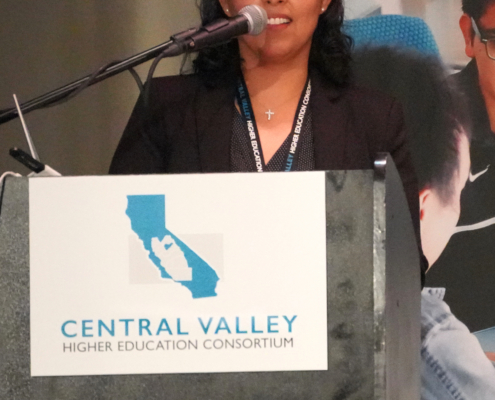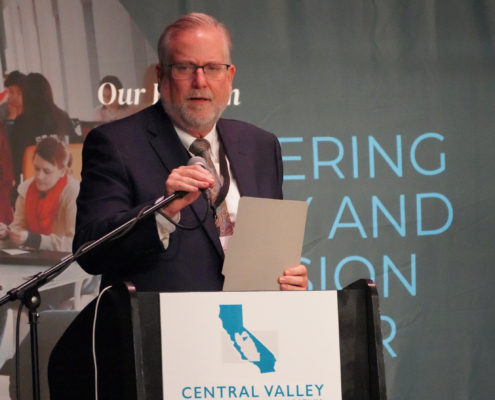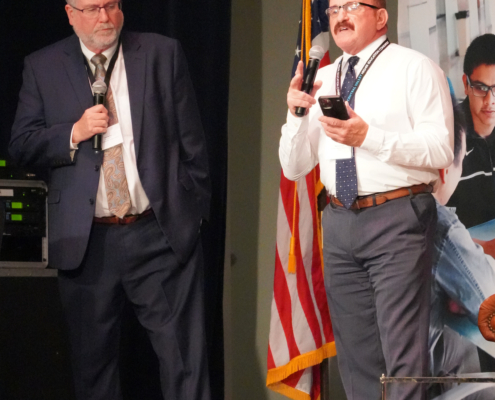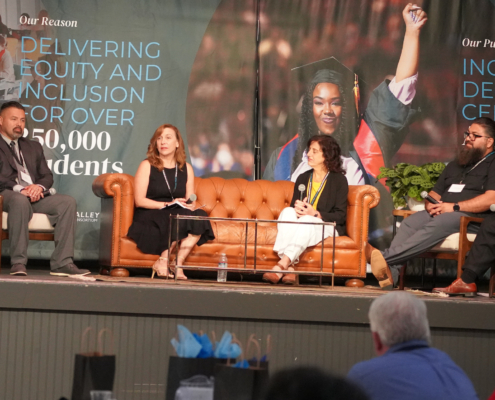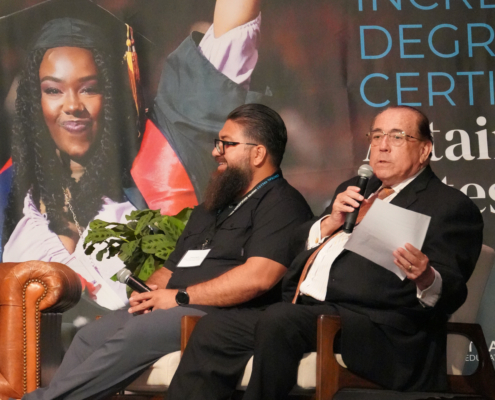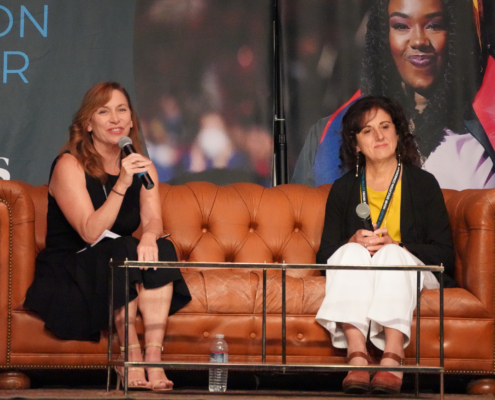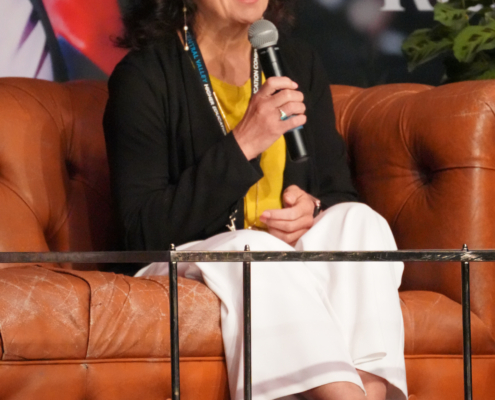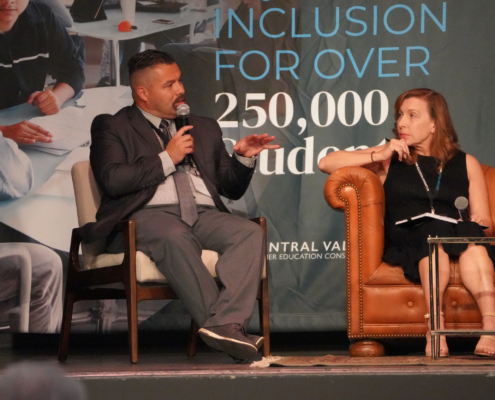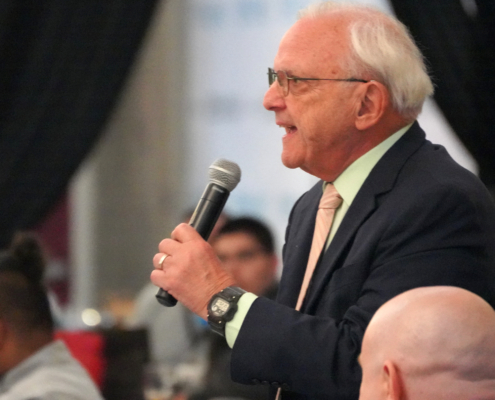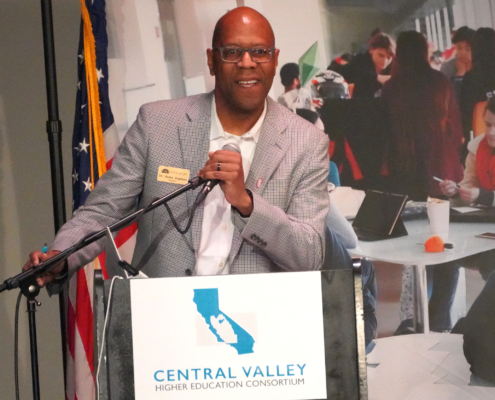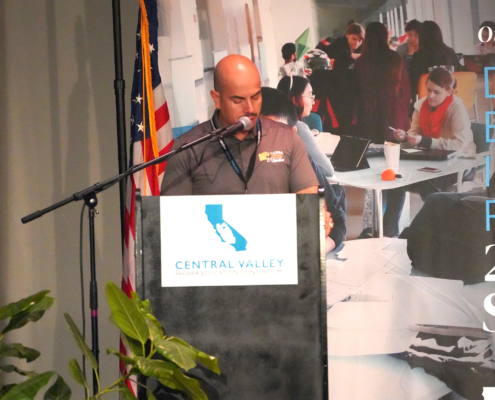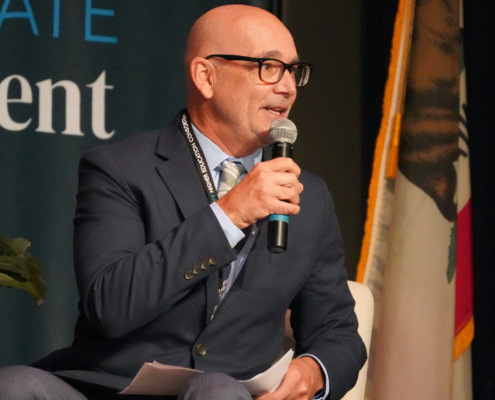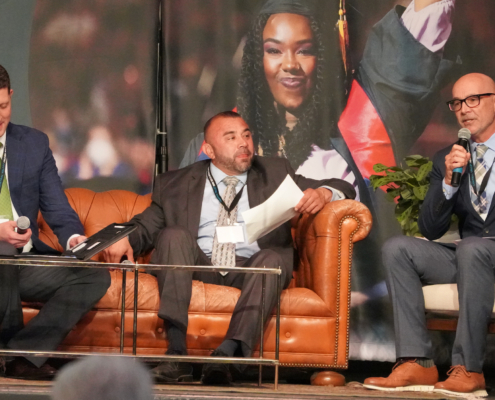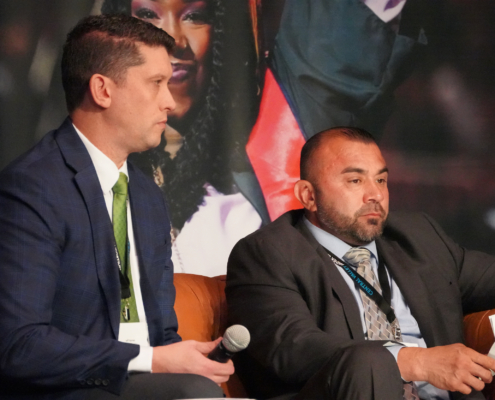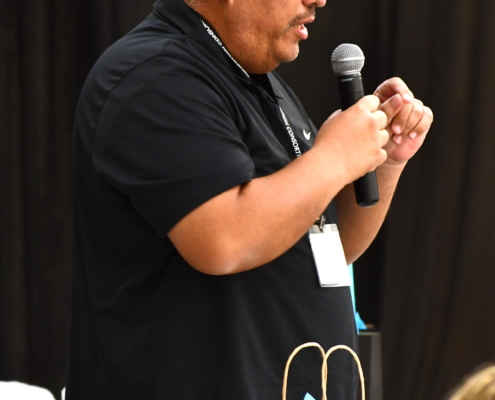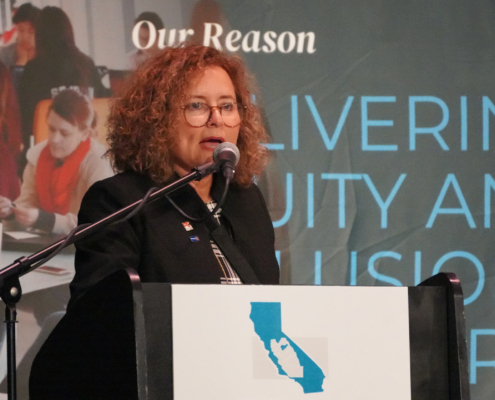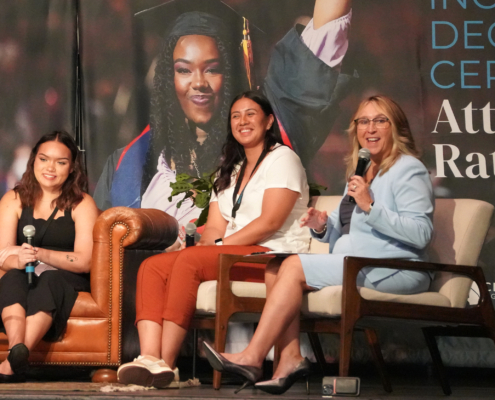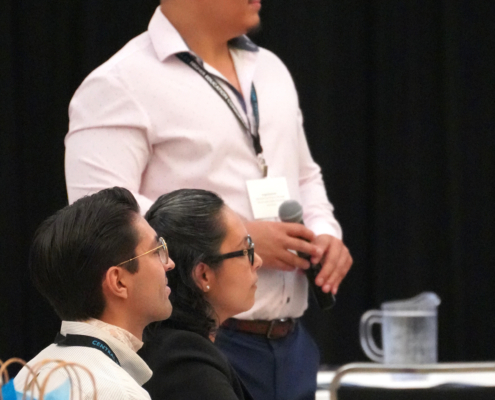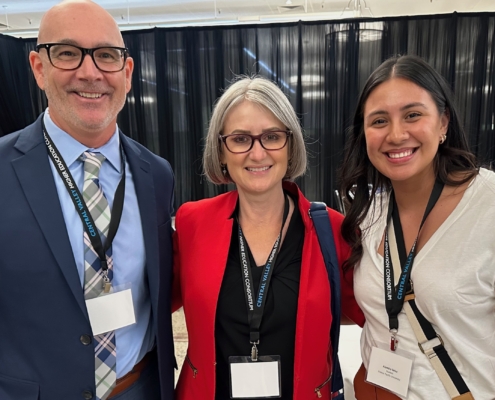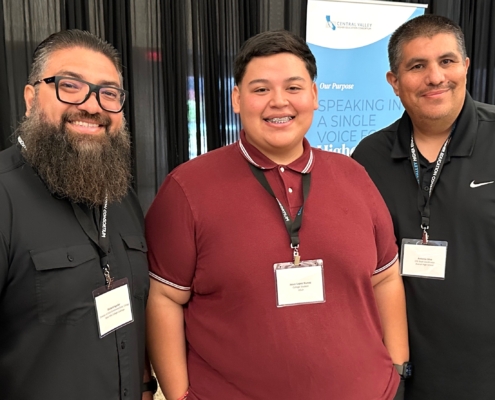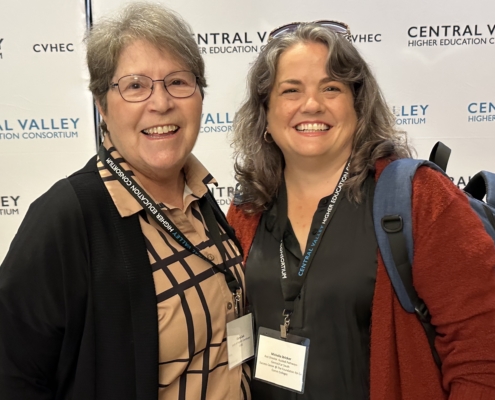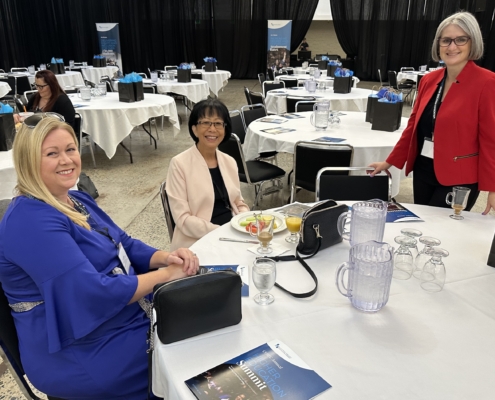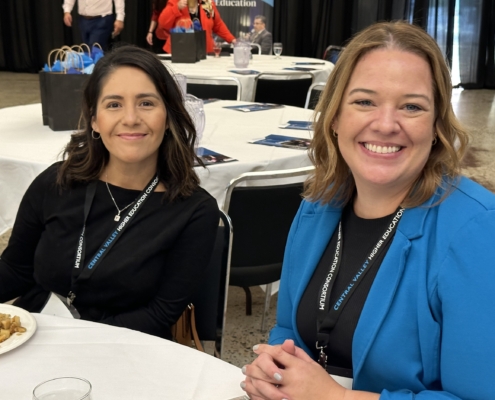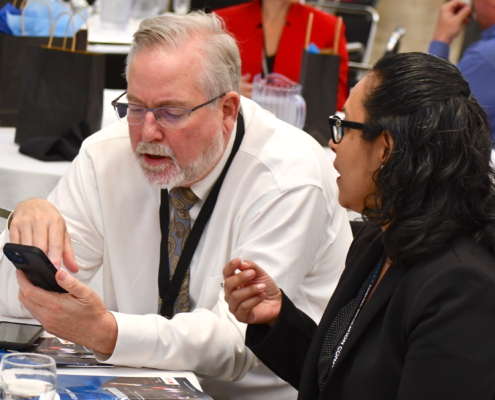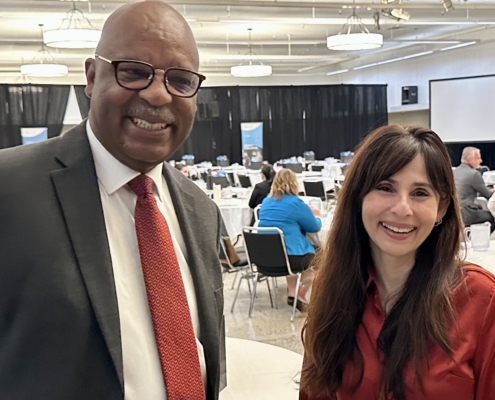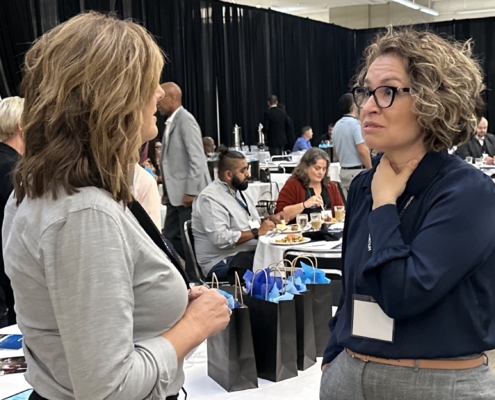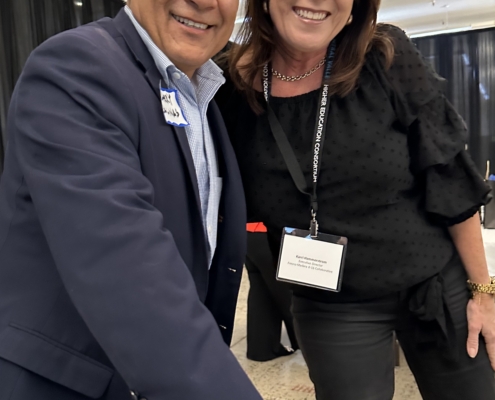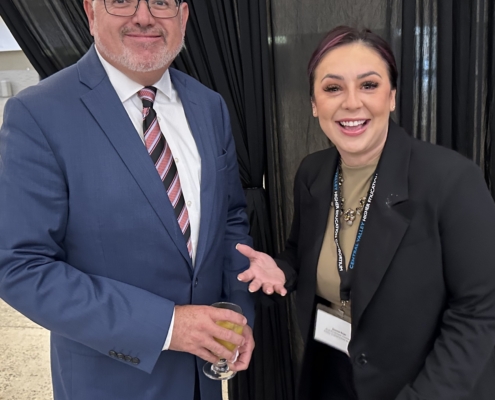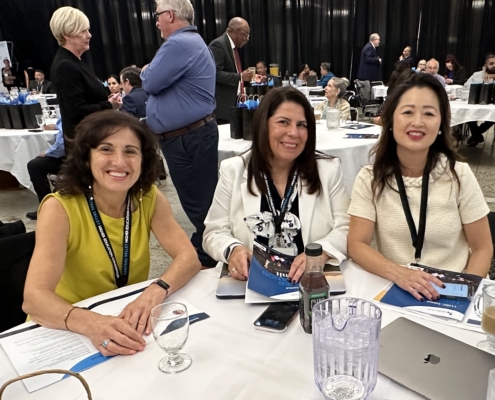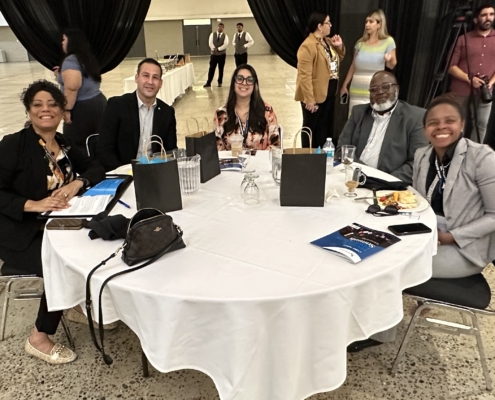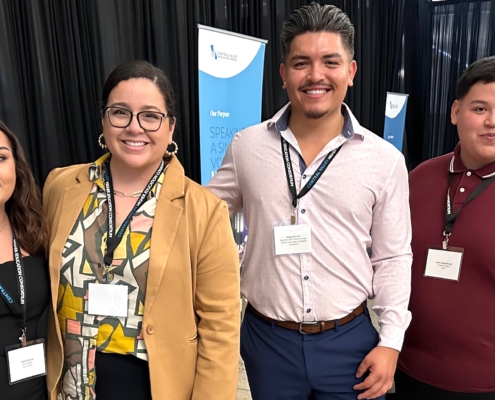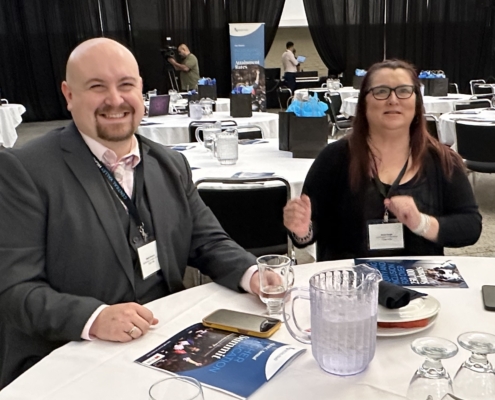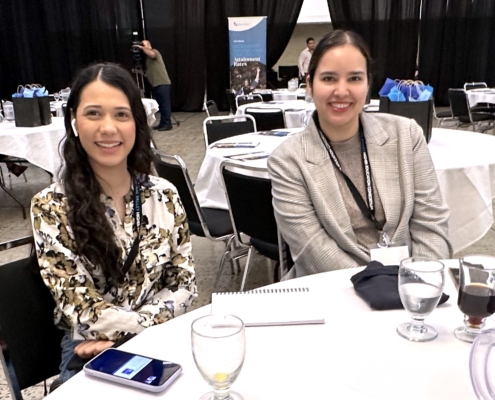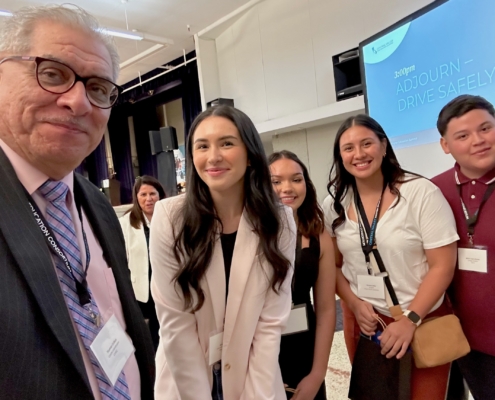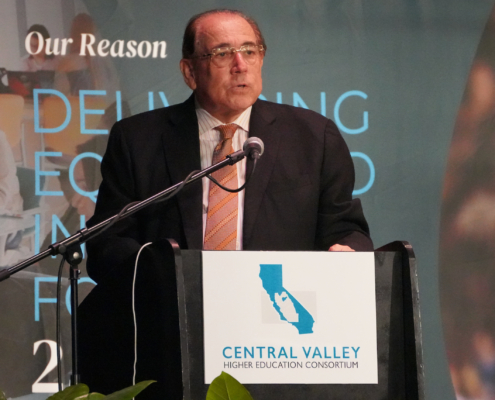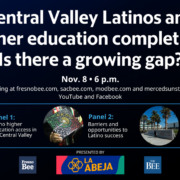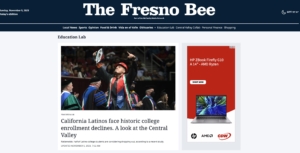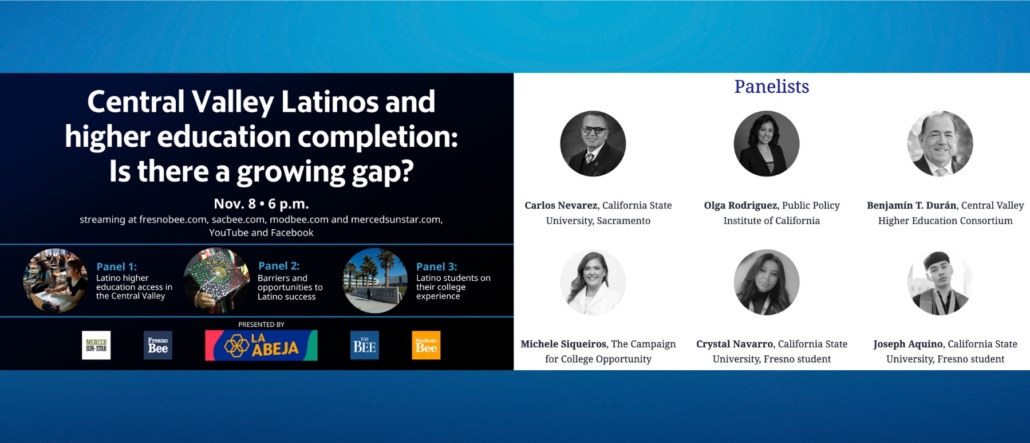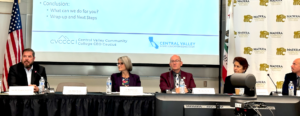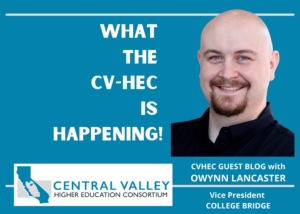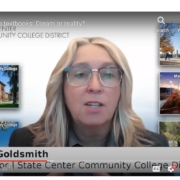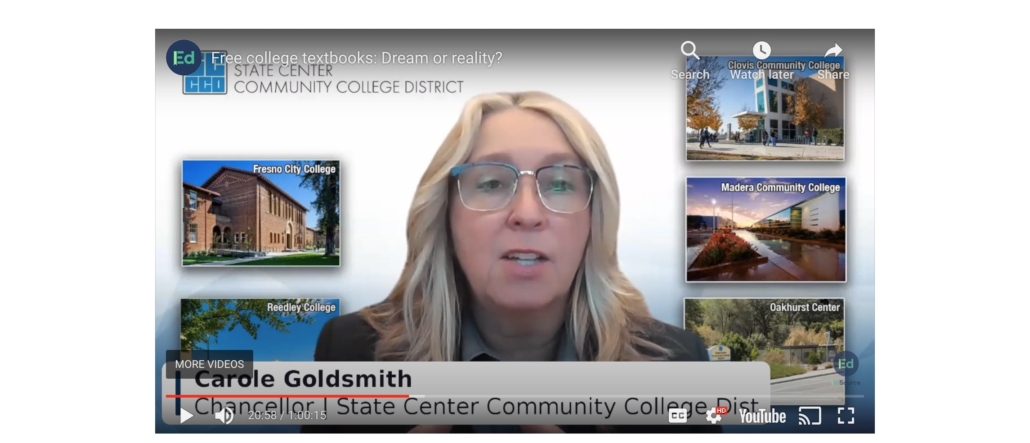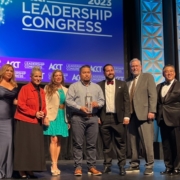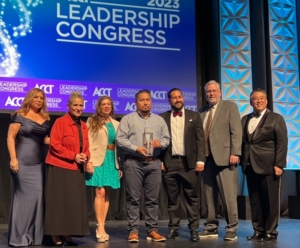CVHEC Summit: CCC Chancellor announces Transfer Pathways Demonstration
Initiative builds on CVHEC’s Transfer Project creating clear path for
transfer students to reach educational goals while closing equity gaps
MEDIA COVERAGE: The recent Central Valley Higher Education Summit and announcement of the California Community College Central Valley Transfer Pathways Demonstration Project, by Chancellor Sonya Christian was featured by KVPR Radio and GV Wire.
BY TOM URIBES
CVHEC Communications/Media Coordinator
(OCTOBER 20, 2023) — The California Community College Chancellor’s Office will launch a new initiative, the Central Valley Transfer Pathways Demonstration Project, Chancellor Sonya Christian announced today at the Central Valley Higher Education Summit 2023 in Fresno.
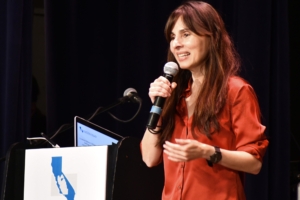
Dr. Sonya Christian, chancellor of the California Community Colleges, announced the Central Valley Transfer Pathways Demonstration Project during her keynote remarks at CVHEC’s Central Valley Higher Education Summit in Fresno today. (Tom Uribes/CVHEC photo).
In a partnership with the Central Valley Higher Education Consortium, the CV Transfer Pathways — modeled after CVHEC’s Transfer Project — entails developing and publishing 2 + 2 transfer pathways using the Program Pathways Mapper software to clarify the path to four year colleges for transfer students as well as for campus staff.
The new demonstration project, which begins immediately with Central Valley community colleges, will build on the strong intersegmental relationships developed by CVHEC’s project that was first launched in 2021, Chancellor Christian said in an announcement that energized the summit audience.
Presented by CVHEC and sponsored by the College Futures Foundation, the summit attracted 184 higher education officials and educators, legislators and partner representatives for a full day of discourse surrounding Dual Enrollment, Transfers, Math Pathways and Open Educational Resources.
The annual event followed the quarterly meeting Thursday of the CVHEC Board of Directors that consists of the chancellors, presidents and campus directors of the consortium’s 28-member colleges and universities in the nine-county region from San Joaquin to Kern.
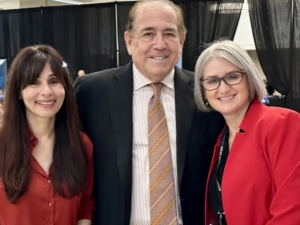
Dr. Sonya Christian, chancellor of the California Community Colleges, with Dr. Benjamin Duran, CVHEC executive director and Merced College president-emeritus; and Dr. Kristen Clark, chancellor of West Hills Community College District who also is chair of the CVHEC board.
Chancellor Christian, who served on the CVHEC board when she was chancellor of the Kern Community College District and president of Bakersfield College prior to her systemwide appointment earlier this year, said the CCC’s Central Valley Project will be a demonstration project for the system’s Vision 2030 that will explore “how we can let the data flow” from the community college to the CSU and other transfer partners.
Vision 2030: A Roadmap for California Community Colleges is a framework for policy reform, fiscal sustainability, systems development and for process and practice reform in the field, the chancellor said.
“CVHEC’s Transfer Pathways project is creating a clear path for transfer students in the Central Valley to reach their educational goals while closing equity gaps,” Chancellor Christian said. “The Chancellor’s Office is proud to partner with the Central Valley Higher Education Consortium on this demonstration project to help expand and strengthen partnerships and use this model to help support our strategic plan, Vision 2030.”
Dr. Benjamín Durán, CVHEC executive director and president-emeritus of Merced College, said he is pleased “that Chancellor Christian, who is very familiar with the program, recognizes the excellent, cutting-edge work that has been occurring in the Central Valley through our Transfer Project.
“Our team has worked diligently with community college and four-year consortium members to establish this program for students going through the transfer process. This project has been gaining nationwide attention, so we appreciate that the CCC Chancellor’s Office leadership as the first major system to embrace and build on this CVHEC initiative for transfer students.”
CVHEC’s Transfer Project was launched in a pilot program two years ago with UC Merced, Bakersfield College and Merced College. The project has grown to include 12 Central Valley community colleges with UC Merced, Stanislaus State and CSU Bakersfield and is gaining state and national attention with presentations at various conferences.
The CVHEC team of Stan Carrizosa, CVHEC regional coordinator and president-emeritus of College of the Sequoias in Visalia; Dr. James Zimmerman, special assistant to the executive vice chancellor and provost for Transfer Initiatives at University of California, Merced; and KCCD Interim Chancellor Tom Burke will again present at the Complete College America conference in December.
For the California Community College demonstration project, support and funding has come from the California Education Learning Lab, the College Futures Foundation, CVHEC and the CCC Chancellor’s Office.
Craig Hayward, the associate vice chancellor of analytics and innovation at KCCD and visiting executive at the CCC Chancellors Office, said the work of the CV Transfer Pathways entails developing and publishing 2 + 2 transfer pathways that have been vetted and validated by discipline faculty, counselors, education advisors and articulation officers. These maps clarify the path for transfer students as well as for campus staff and are freely available via each campus’ Program Pathways Mapper site (see programmapper.org).
He said work on the Transfer Pathways demonstration project begins immediately and will comprise three main areas:
- Supporting the expansion of connections among community colleges and universities across the Central Valley in the Program Pathways Mapper.
- Leverage the strong relationships among community colleges and their transfer partners to explore how new infrastructure development projects can support the Vision 2030 objective of automatically matriculating ADT completers at the CSU and other transfer partners.
- Build on Central Valley-centric projects such as the Learning Lab-funded Streamlining Transfer Pathways grant to implement cutting edge developments in clarifying and streamlining STEM transfer pathways and creating coherent core STEM sequences that are accepted equally at all university partners.
For media inquiries about the CCC project, contact Melissa Villarin at 916-327-5365 or mvillarin@cccco.edu. For CVHEC media inquiries, contact Tom Uribes via text 559.348.3278 or email cvheccommunications@mail.fresnostate.edu.

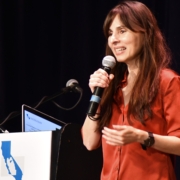
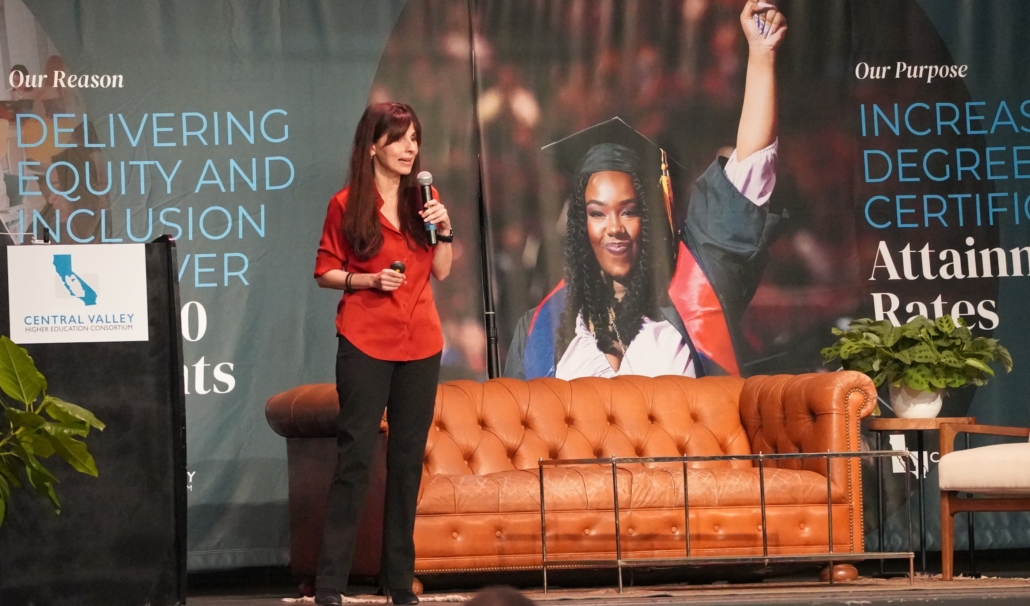
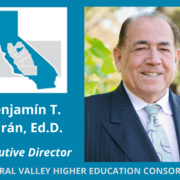
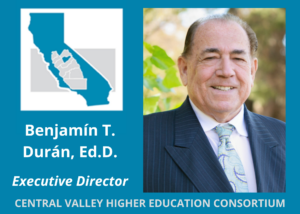 As expected, her presentation was inspiring and reflected her commitment to students in the state. Dr. Christian took this opportunity at the summit to announce and launch the CCCCO Central Valley Transfer Pathways Demonstration Project that will build upon the progress of our own Transfer Project partnership between the community colleges, the CSUs and UC Merced here in the valley. The CCCCO project is unique in California in that it includes the three segments of public colleges and universities and will eventually include the independent universities as well.
As expected, her presentation was inspiring and reflected her commitment to students in the state. Dr. Christian took this opportunity at the summit to announce and launch the CCCCO Central Valley Transfer Pathways Demonstration Project that will build upon the progress of our own Transfer Project partnership between the community colleges, the CSUs and UC Merced here in the valley. The CCCCO project is unique in California in that it includes the three segments of public colleges and universities and will eventually include the independent universities as well.